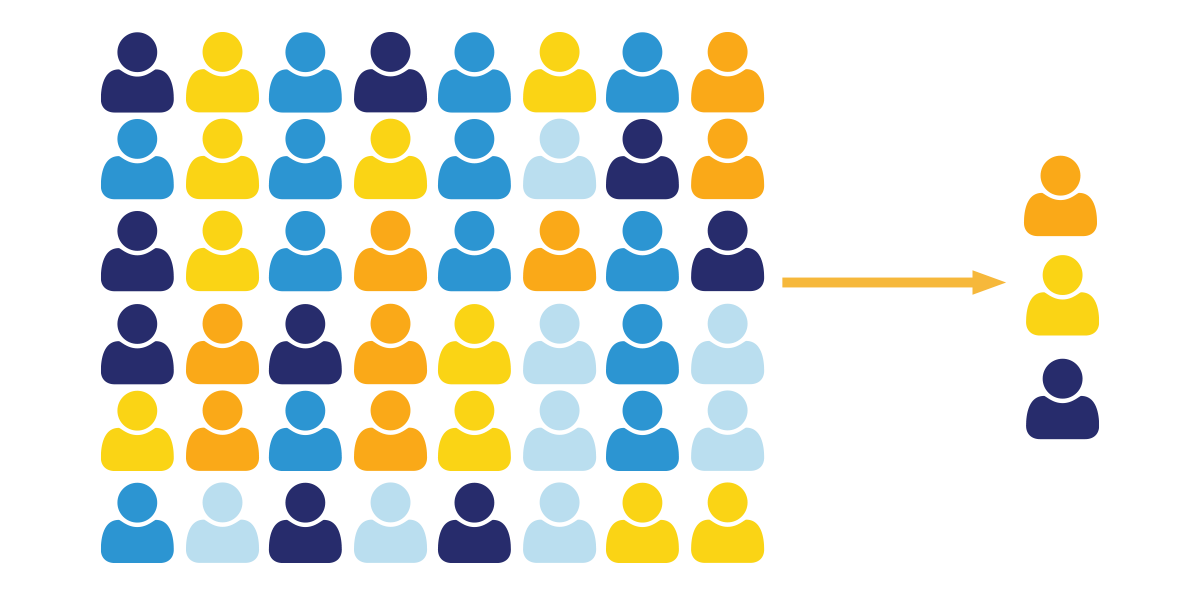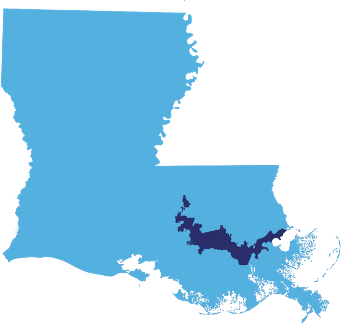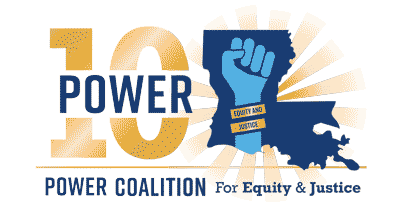
**PRESS RELEASE** FOR IMMEDIATE RELEASE- April 20, 2021
Political Redistricting Shapes Local and Federal Elections
New Orleans, LA– On March 20, Louisiana had special elections for 2 Congressional House seats. Congressional Districts 2 and 5 turned out to vote, some people for the 3rd time since the November election. Power Coalition and partners activated our command center that includes an election protection hotline, monitoring social media, and engaging lawyers and advocates to engage in rapid response to any concerns at polling locations to ensure fair elections. We received numerous calls and saw reports from voters who could not cast their ballot because their polling place was closed.
One twitter tweeted that voter suppression was happening in Louisiana. She was right, there is a version of voter suppression happening in Louisiana, and it’s deeper than people imagined. The political districts in Louisiana are drawn to suppress the voices of people of color. In Baton Rouge and New Orleans this became very apparent on this past election day when people in the same neighborhood and zip code did not vote for the same Representative.
House Congressional District 2, in particular, is heavily gerrymandered and limits the power of voters of color. Gerrymandering is the process of manipulating political district borders to favor one group. This can be done to limit the power of people of color, populations that may vote a certain way on specific issues, socio economic groups, political parties, or other interest groups. This happens during the “Redistricting” process which happens every 10 years after census data is collected. In 2021, we have the opportunity to redraw these districts to reflect our neighborhoods, cities, and state in a more equitable manner.
As the two most populous cities in the state, and with some of the highest density of Black people in the state, New Orleans and Baton Rouge have been pushed into one district that is overwhelmingly Black. Black people in Louisiana make up 30% of the population, but make up 61% of this district. This overrepresentation means that there is less representation in other districts and dilutes the voices of Black people in other areas.
Fixing this problem looks like creating political boundaries that do not “pack” people of a certain demographic into one political district. It means not “cracking” neighborhoods into two different districts to dilute their power in each district. It also means including the voices of the people in the process.
Power Coalition for Equity and Justice is hosting our 3rd Redistricting Academy May 5-7 to train community members on the Redistricting Process and how to contact elected officials about this process. We, and our partners at Southern Coalition for Social Justice are bringing on 3 CROWD Redistricting Fellows to work with communities across the state to educate and include people in the Redistricting Process. We encourage everyone to visit PowerCoalition.org/Redistricting to find more resources about Redistricting, and visit geauxvote.com to see if you live in Congressional District 2 and have an election on Saturday, April 24.

The Power Coalition for Equity and Justice works to build voice and power in traditionally ignored communities. We are a coalition of groups from across Louisiana whose mission is to organize in impacted communities, educate and turn out voters, and fight for policies that create a more equitable and just system in Louisiana.
Who: Power Coalition for Equity and Justice
What: Power Coalition for Equity and Justice engage the community to turn out the vote and engage in the political redistricting process
When: Tuesday, April 20, 2021
Contacts:
Ashley Shelton, Founder, President and CEO, Power Coalition for Equity and Justice, (225) 802-2435, ashelton@powercoalition.org
Georgia Barlow, Executive Research Analyst, Power Coalition for Equity and Justice, (207) 351-7502, gbarlow@powercoalition.org

